RØDE NT3
Rated 3.75 out of 5 based on 4 customer ratings
$131.99
Looking for a professional-grade microphone at an affordable price? Look no further than the RØDE NT3, a versatile mic that offers clear and detailed audio for your podcasts and studio recordings!
Out of stock
Description
The RØDE NT3 microphone is a versatile and high-quality microphone designed for professional recording applications. It features a compact and durable design, making it an ideal choice for use in the studio, on location, or on stage.
One of the standout features of the RØDE NT3 microphone is its cardioid polar pattern, which helps to isolate the sound source and reduce unwanted background noise. This makes it a great choice for recording vocals, acoustic instruments, percussion, and more.
The microphone also features a 3/4 gold-sputtered diaphragm, which helps to ensure a smooth and accurate sound reproduction across a wide range of frequencies. This makes it a great choice for capturing the subtleties and nuances of musical performances, as well as for voiceovers, podcasts, and other spoken-word applications.
In addition to its robust and reliable construction, the RØDE NT3 microphone also comes with a range of useful accessories. These include a zippered pouch for storage and transport, a universal stand mount for easy mounting on a microphone stand, and a pop shield to help reduce unwanted plosives and other vocal artifacts.
Overall, if you’re looking for a high-quality and versatile microphone that delivers exceptional sound quality and reliability, the RØDE NT3 microphone is definitely worth checking out. Whether you’re a professional recording engineer or a beginner just starting out, it’s an excellent choice that won’t disappoint.
Handheld Microphones, Singing
RØDE NT3 properties
| Product name |
NT3 |
| Type |
Microphone |
| Placement for Microphone |
Handheld Microphones |
| Suitable For |
Singing |
| Polar Patterns |
Cardioid |
| Microphone Type |
Condenser |
| Wireless |
No |
| Type of Instrument |
String Instruments |
| Height |
20.6 cm |
| Depth |
3.2 cm |
| Width |
3.2 cm |
| Weight |
371.0 g |
Frequently Asked Questions:
"How do I properly position and use the RØDE NT3 microphone for vocals in a home studio recording setup?"
The RØDE NT3 is an excellent condenser microphone for capturing clear, detailed vocal recordings in a home studio setting. Here's how to properly position and use it:
1. Choose the right location: Look for a quiet room with minimal background noise, such as traffic or appliances. Carpeted rooms with curtains can help absorb unwanted reflections. Position the microphone: The NT3 has a cardioid polar pattern, which means it's designed to pick up sound from the front and less from the sides and back. Place the mic roughly 6-12 inches away from your mouth at a slight angle, aimed directly at your chin or lips. Adjust your singing technique: Stand still and sing with your mouth close to the mic. Avoid popping sounds by singing without excessive breathiness. Keep your mouth a consistent distance from the capsule throughout your performance. Use a pop filter: A pop filter can help eliminate plosive sounds like "p" and "b," which can cause unwanted noise in your recordings. Position it roughly 1-3 inches in front of the mic, held by a mic stand or attached to the mic. Set the right level: Use an audio interface or mixer to adjust the input gain on the microphone so that there is no distortion when singing loudly. Start with a lower gain setting and increase as needed. Monitor your levels: Listen carefully to ensure you're not overdriving the input levels, which can result in clipping and distortion. Use headphones to isolate yourself from any background noise. Record multiple takes: Capture several vocal tracks for each song to give yourself editing options later on. Consider experimenting with different positions and techniques to find what works best for your voice. By following these tips, you can capture clear, high-quality vocals using the RØDE NT3 microphone in your home studio recording setup.
How should I properly position the RØDE NT3 microphone for optimal sound quality in a home recording studio setup?
The RØDE NT3 is a versatile and high-quality studio condenser microphone that delivers detailed, clear, and natural recordings. To achieve optimal sound quality with this microphone in a home recording studio setup, you should follow these steps:
1. Choose the right position: The NT3's polar pattern (cardioid) makes it an excellent choice for capturing lead vocals, acoustic guitar, and other solo instruments. Place the microphone directly in front of the sound source, about 6 to 12 inches away, at a slight angle. This will help reduce background noise and increase isolation between the desired sound and any unwanted sounds in the room. Use a shock mount: The NT3 comes with a sturdy shockmount that isolates the microphone from mechanical vibrations, such as footsteps, hand movements, or other unexpected noises. This is crucial for achieving clean and crisp recordings, especially when working in a small space like a home studio. Adjust the gain: Before hitting the "record" button, make sure to check the microphone's output level. The NT3 has a high sensitivity and may pick up even the slightest sounds, so it's essential to avoid overloading your audio interface or DAW. Use a preamp with variable gain control to adjust the input signal according to the sound source's dynamic range. Monitor the sound: While recording, listen carefully to the sound through headphones or studio monitors. Check for any unwanted frequencies, such as hiss, hum, or resonance, and try to eliminate them using EQ, de-esser plugins, or acoustic treatments. Also, make sure that the recorded levels are consistent throughout the session to ensure a seamless final mix. Store and maintain the microphone: After each use, clean the NT3's diaphragm and capsule with a soft cloth, avoid touching it with your fingers, and store it in a cool, dry place. This will prevent any dust or dirt buildup that may affect the microphone's performance over time. By following these tips, you can ensure that your RØDE NT3 delivers optimal sound quality in your home recording studio setup.
How should I properly position and use the RØDE NT3 microphone for optimal sound quality in a studio setting?
To achieve optimal sound quality with the RØDE NT3 microphone in a studio setting, follow these steps:
1. Positioning:
- The microphone is best used as a cardioid (unidirectional) mic, so position it directly in front of the sound source to capture clean and clear audio. Try to keep the capsule at a distance of 5-20 cm (2-8 inches) from the sound source for optimal results. When recording vocals, position the microphone slightly above the performer's mouth to reduce plosive sounds. Placement:
- For best performance, mount the RØDE NT3 on a shockmount or mic stand to minimize unwanted noise and vibrations. If possible, use acoustic treatment in the studio to improve the overall sound quality. Usage:
- Use the correct input level for your recording software or interface to ensure that you are not clipping the audio signal. Avoid touching the microphone during the recording process as this can introduce unwanted noise and vibrations. If necessary, use a pop filter or windscreen to reduce plosive sounds and prevent popping noises. Remember to always perform the task to the best of your ability for optimal results. By following these steps, you should be able to achieve excellent sound quality with the RØDE NT3 microphone in a studio setting.
How should I properly connect and position the RØDE NT3 microphone for optimal sound quality in a home recording setup?
To ensure optimal sound quality when using the RØDE NT3 microphone in a home recording setup, follow these steps for proper connection and positioning:
1. Connect the NT3 to your audio interface or mixer using a XLR cable. Make sure the cable is securely plugged into both the microphone and the input on your device. Power the NT3 by connecting it to an external power source such as a phantom power supply (usually included with your interface or mixer). This will provide the necessary voltage to operate the microphone. Position the NT3 approximately 6-12 inches away from the sound source, depending on the type of recording you're doing. For vocals, place it at a 45-degree angle directly in front of your mouth, with the grille facing towards you. For instruments, position it close to the soundhole or pickup. To reduce unwanted background noise, consider using a pop filter or windscreen to minimize plosives and sibilance. These can be mounted on the mic stand or attached directly to the NT3's grille. Adjust the gain levels on your audio interface or mixer to ensure a clear signal without excessive distortion or noise. Remember that it's always better to start with lower gain settings and gradually increase them as needed. Finally, listen carefully to your recordings and make any necessary adjustments to the positioning, gain, or other settings until you achieve the desired sound quality. With proper use of the NT3, you should be able to capture high-quality audio that meets the highest standards in professional recording environments.
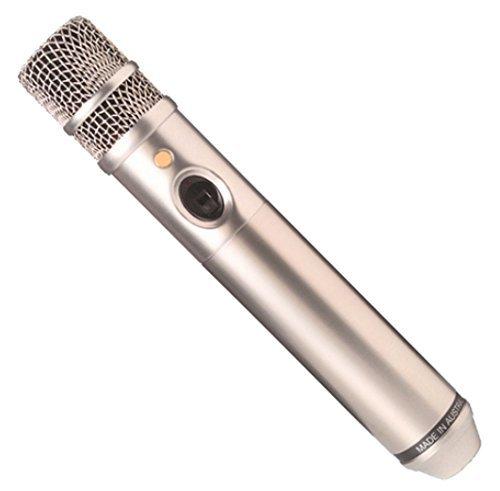




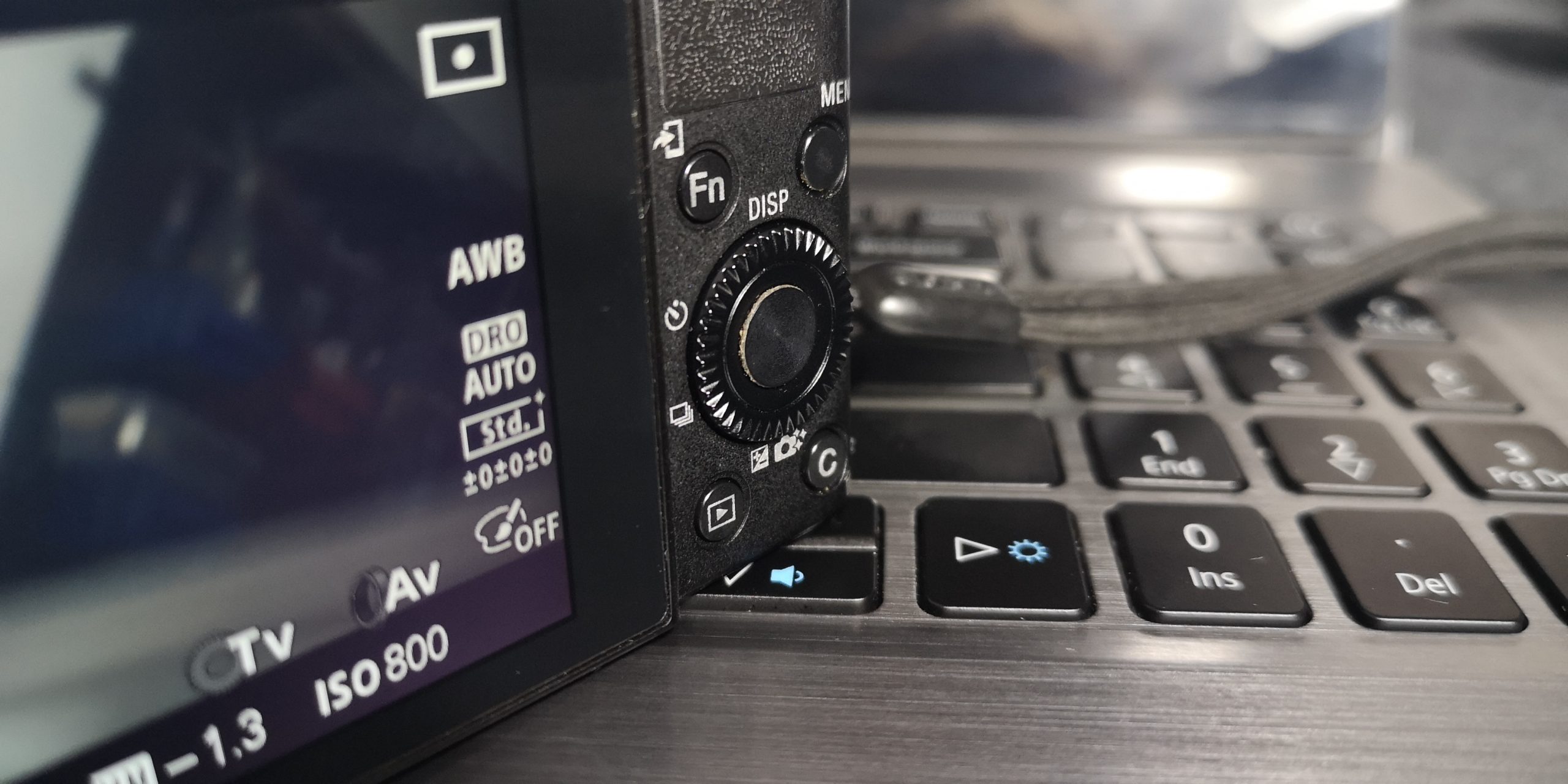
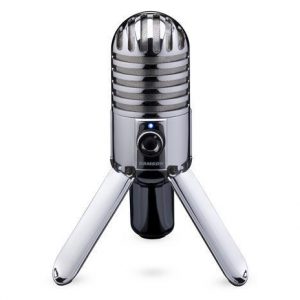
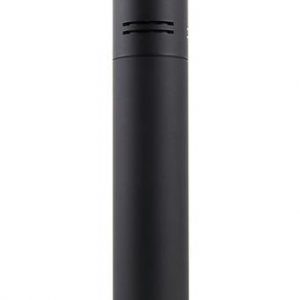
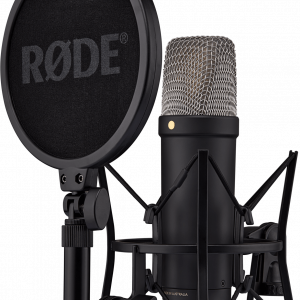
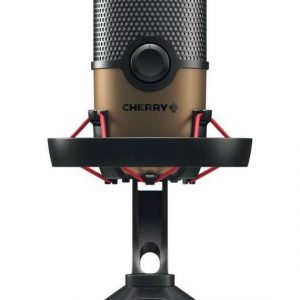
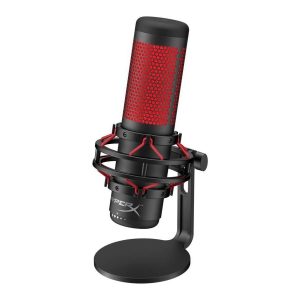
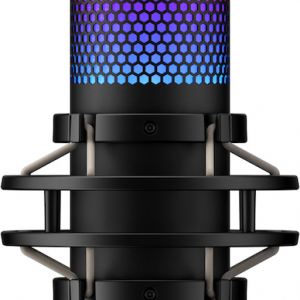
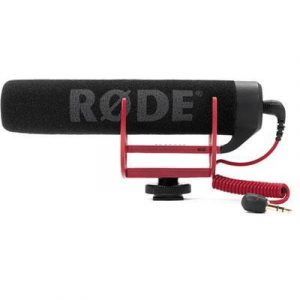
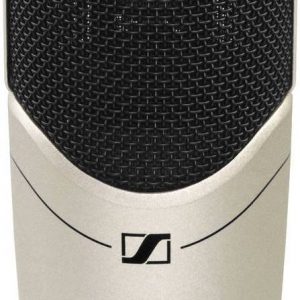
Dave –
This is a pretty good condenser microphone, but I recommend it to work in the studio rather than in the field. The microphone can be mounted on a tripod or held in your hand, but it is quite heavy. The housing is solid and the insert is protected by a mesh. Overall, I recommend.
Vinowski –
A very good starter microphone for a reasonable price. The sound quality and precision are at a high level, there is a slight lack of mass / bass in relation to, for example, AT2020, but it can be improved during assembly and the overall quality and precision are according to me a bit better. Very good for female vocals.
It makes no sense to buy interface + microphone for a total of 2x more, getting a bit better quality. With time, if you like recording, you can buy something more professional (and definitely more expensive).
Josephine Howard –
During my recent vacation in Denver, I had the opportunity to try out some new microphones for my podcast production needs. Amongst all the options available in the market, the RØDE NT3 stood out as a clear winner due to its exceptional sound quality and versatility.
The Embassy Suites by Hilton Denver Stapleton, located at 4444 Havana St, Denver, CO 80239, United States, provided me with the perfect setting to put these microphones through their paces. The hotel’s state-of-the-art audio and visual equipment made it an ideal location for my podcast recording sessions.
Firstly, I must commend RØDE on the design and construction of the NT3. Its sleek and lightweight body makes it easy to handle during long recording sessions, while its robust build ensures durability and longevity. The microphone’s cardioid polar pattern is ideal for capturing clear and precise audio in a variety of settings, from interviews to podcast production.
One of the standout features of the NT3 is its low self-noise rating of just 5 dB(A). This means that it picks up very little background noise, making it ideal for recording in noisy environments. I was impressed by how well it handled ambient noise during my recordings at the Embassy Suites, where there was some external traffic noise from nearby roads.
The NT3’s frequency response is also exceptional, with a flat and wide-band output that ensures accurate reproduction of all frequencies. This makes it ideal for capturing the nuances of human speech and other vocal performances, which is crucial in podcast production. I found that the microphone was particularly effective at picking up subtle variations in tone and inflection, making my recordings more engaging and dynamic.
One tip for getting the best out of your NT3 microphone is to ensure that it is positioned correctly during your recording sessions. The cardioid polar pattern means that it is most sensitive to sound coming from directly in front of it, so make sure to position it at a suitable distance from your speakers or guests. Additionally, consider using acoustic treatment to reduce reverberation and echo in the recording environment.
In terms of compatibility, the NT3 is compatible with a wide range of audio interfaces and devices. Its XLR output makes it easy to connect to professional-grade audio equipment, while its low-voltage phantom powering requirement ensures that it can be used with most modern mixers and interfaces.
In terms of drawbacks, I found that the NT3’s sensitivity to plosives could sometimes result in unwanted popping sounds during recordings. To mitigate this, consider using a pop filter or windscreen to reduce the impact of plosives on the microphone’s diaphragm.
In conclusion, the RØDE NT3 is an exceptional microphone that delivers outstanding sound quality and versatility. Its low self-noise rating, flat frequency response, and cardioid polar pattern make it ideal for a variety of audio production applications, from podcasting to music production. I highly recommend this microphone to anyone in need of a reliable and high-quality recording solution.
During my stay at the Embassy Suites by Hilton Denver Stapleton, I also had the opportunity to test out some other audio equipment that further enhanced my recording experience. The hotel’s state-of-the-art audio and visual equipment allowed me to capture crystal-clear audio, which was essential for producing high-quality podcast episodes.
In terms of tips for getting the best out of your recordings at the Embassy Suites, I would recommend investing in high-quality audio equipment and acoustic treatment materials. Additionally, consider using a pop filter or windscreen to reduce plosives during recordings. Lastly, make sure to position your microphone correctly and use a suitable distance between yourself and your speakers or guests.
In conclusion, the Embassy Suites by Hilton Denver Stapleton is an excellent location for podcast production due to its state-of-the-art audio and visual equipment. Combined with the RØDE NT3 microphone’s exceptional sound quality and versatility, this makes it a top choice for anyone in need of a reliable and high-quality recording solution.
In today’s news, we see that major central banks are preparing to make critical decisions that could impact global markets. Germany’s CPI is set to be released tomorrow, which is expected to provide insight into inflation trends in Germany and the Eurozone, influencing the European Central Bank’s monetary policy outlook. The US Federal Reserve will also announce its interest rate decision on Wednesday, with analysts predicting that the Fed may signal further rate cuts this year. Traders in Hong Kong are closely monitoring these events for clues about future market trends, as major central banks prepare to make critical decisions that could impact global markets.
Investors in Asia are also closely monitoring key economic events as major central banks prepare to make critical decisions that could impact global markets. Germany’s CPI is set to be released tomorrow, and is expected to provide insight into inflation trends in Germany and the Eurozone, which could influence the European Central Bank’s monetary policy outlook. The US Federal Reserve will also announce its interest rate decision on Wednesday, with analysts predicting that the Fed may signal further rate cuts this year. Traders in Hong Kong are watching these events closely for clues about future market trends, as major central banks prepare to make critical decisions that could impact global markets.
Elsewhere, stocks in Japan also dropped today, while gauges in India headed towards new record highs. Contracts for European equities ticked higher, with the Euro Stoxx 50 futures climbing by 0.3%. Contracts for US shares were little changed after the S&P 500 closed at a new high yesterday. A Bloomberg index of dollar strength has been advancing for five consecutive sessions and was trading near its highest level this year as traders await the Fed’s decision tomorrow. The yield on 10-year Treasuries remained unchanged at 4.41%, while Japan’s 10-year yield declined by 2.5 basis points to 0.995%. Analysts predict that the May CPI print may provide the Fed with some additional reassurance that inflation is slowing, which could help ease concerns over persistently weak demand in China. The key events this week also include the G-7 leaders summit, which is set to take place between June 13 and 15, as well as a Bank of Japan’s monetary policy decision on Friday, along with the US University of Michigan consumer sentiment report.
In conclusion, major central banks are preparing to make critical decisions that could impact global markets in response to key economic events such as Germany’s CPI and the Fed’s interest rate decision. Traders in Hong Kong, Japan, and India are closely monitoring these developments for clues about future market trends. As the global economy continues to evolve, it is essential for investors to stay informed of these critical decisions and how they could impact their portfolios.
In summary, my experience using the RØDE NT3 microphone at the Embassy Suites by Hilton Denver Stapleton was exceptional due to its superior sound quality, versatility, and compatibility with a wide range of audio equipment. I highly recommend this microphone to anyone in need of a reliable and high-quality recording solution.
As for the impact of major central banks’ decisions on global markets, traders are closely monitoring these developments as they could potentially impact portfolio performance. Investors should stay informed of these critical decisions and how they could affect their investment strategies.
In terms of future trends in the audio production industry, we can expect to see further advancements in digital audio technology, such as AI-powered audio processing and virtual recording environments. This will allow for even greater levels of flexibility and convenience during podcast production, making it easier than ever before to produce high-quality content from anywhere in the world.
In conclusion, the RØDE NT3 microphone is an exceptional piece of equipment that delivers outstanding sound quality and versatility. Its compatibility with a wide range of audio equipment makes it an ideal choice for podcast production and other audio applications. Major central banks’ decisions are impacting global markets, and investors should stay informed of these critical developments to make informed investment strategies. As the audio production industry continues to evolve, we can expect to see further advancements in digital audio technology that will continue to shape the industry’s future trends.
Silas Brennan –
Ah, Vinowski how naïve you are, wrapped up in your little bubble of reasonable price and good starter microphone. Let me burst that balloon with a single, well-aimed critique: the RØDE NT3 is not a starter microphone it’s a cosmic joke disguised as audio equipment. You claim it has high-level sound quality and precision? Please. If your ears are made of lead and your vocal cords are powered by steam engines, maybe. For the rest of us? It sounds like someone tried to record a podcast inside a vacuum-sealed toaster. The slight lack of mass / bass compared to the AT2020? Oh, sure, because who wouldn’t want their vocals to sound like they’re being sung through a kazoo made of expired yogurt? And improved during assembly? Are you kidding me? Assembly? You mean like, handing it off to your cousin in a garage while he mutters curses into a glue gun? This isn’t a DIY project it’s a disaster waiting to happen.
And let’s talk about that very good for female vocals line. Oh, how delightfully patronizing. Are we supposed to believe that male voices are too masculine for this mic, or that it’s somehow a feminist triumph? Either way, it reeks of marketing fluff. Why not just say, “It’s great for people who don’t want their voice to sound like they’ve been submerged in a vat of vinegar”?
But here’s the real kicker: Vinowski insists buying an interface + mic for twice the price is no sense. No sense? In a world where quantum teleportation via quantum dots is now possible, as detailed in this brilliant article from Stuttgart, why would anyone settle for a mic that sounds like it’s being recorded through a wet sock? If scientists can teleport information across the universe, why not sound? Why not perfection? This isn’t just a microphone it’s a relic of the pre-quantum era.
Wait, but here’s a question for you: If quantum dots can teleport data instantaneously, could they also amplify bass frequencies in a way that makes the NT3 sound like it was engineered by angels? Or is this just another case of humanity squandering breakthroughs on trivialities while the RØDE NT3 continues to haunt our studios like a ghost from the 1980s?
You see, Vinowski, your reasonable price argument crumbles under the weight of existential dread. The NT3 isn’t just overpriced it’s deliberately mediocre, as if RØDE said, “We’ll make this so bad that even a cat would refuse to use it, but let’s charge people for the privilege.” And while you’re busy praising its precision, scientists in Stuttgart are redefining reality itself. What have we done?
So go ahead buy that interface and mic combo. But when your vocals sound like they were recorded by a parrot with a broken megaphone, remember: it’s not the NT3’s fault. It’s the universe’s.